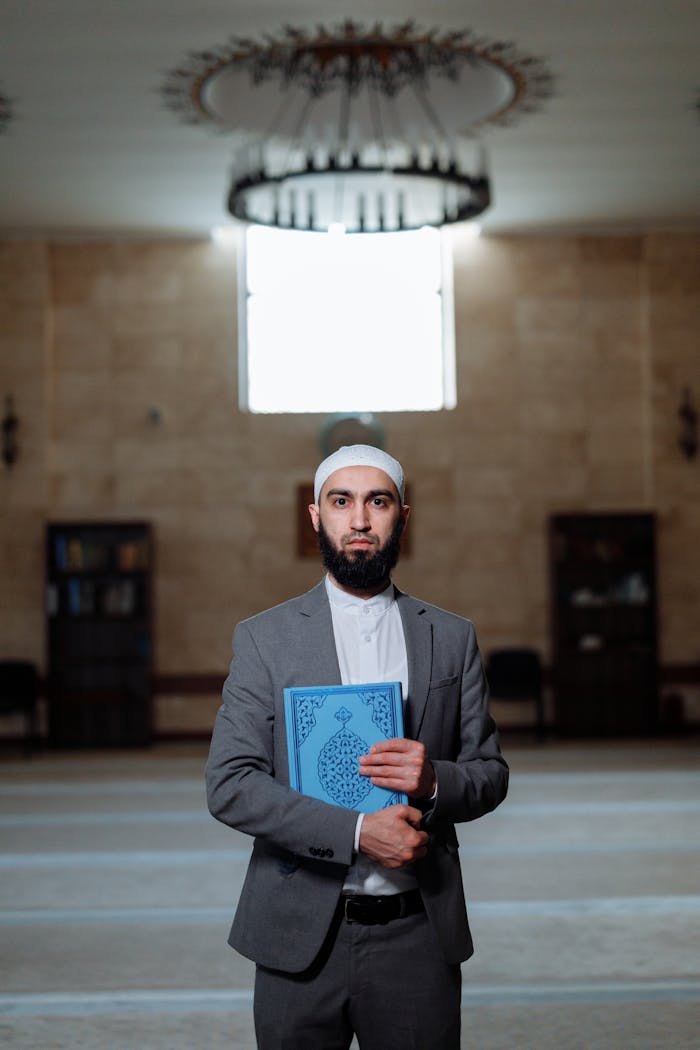Muslim healthcare professionals, including doctors, nurses, therapists, and caregivers, play a crucial role in not only treating physical ailments but also addressing the spiritual and emotional well-being of patients. Their work provides a unique opportunity to practice da’awah through their actions, compassion, and ethical approach to care. By incorporating Islamic values into their healing practices, these professionals foster holistic well-being, benefiting both the body and soul, while subtly spreading the message of Islam through kindness, integrity, and community service.
1. Healing as an Act of Worship (Ibadah)
In Islam, healthcare professionals view their work as an act of worship, where helping others is a means of drawing closer to Allah. The Prophet Muhammad (peace be upon him) said, “Whoever relieves a believer’s distress, Allah will relieve his distress on the Day of Judgment” (Sahih Muslim). This encourages Muslim doctors, nurses, and therapists to approach their work with sincerity and compassion, seeing their service to patients as a form of da’awah.
In Practice: Muslim healthcare workers integrate their sense of religious duty into patient care, making sure to treat each person with dignity, respect, and compassion. This level of care often stands out, leaving a lasting impression on patients from all backgrounds.
2. Empathy and Compassion in Patient Care
Compassion (rahmah) is a core value in Islam, and Muslim healthcare professionals embody this in their daily interactions. The Prophet (peace be upon him) exemplified mercy in all his actions, and healthcare providers strive to emulate this mercy in their practice. Whether it’s a kind word, listening attentively, or going the extra mile for a patient’s comfort, these acts are rooted in Islamic teachings.
In Practice: Muslim nurses, doctors, and therapists offer emotional support alongside medical treatment. They provide comfort to the sick, alleviate their fears, and often remind patients of the power of prayer and patience (sabr) in times of hardship. Their empathetic approach serves as a form of da’awah, subtly introducing Islamic principles through their behavior.
3. Holistic Healing: Integrating Spiritual and Physical Health
Islam promotes holistic well-being, recognizing the interconnection between the physical, mental, and spiritual aspects of a person. Muslim healthcare professionals often encourage practices like prayer, mindfulness (muraqabah), and gratitude (shukr) as part of the healing process. This approach helps patients find peace, reduces stress, and improves their overall health outcomes.
In Practice: A Muslim therapist, for example, might combine psychological therapy with spiritual counseling, helping Muslim patients find solace in prayer and reflection. Similarly, a Muslim doctor might encourage patients to engage in spiritual practices that reduce anxiety and promote a sense of inner peace, alongside medical treatment.
4. Ethical Practice Based on Islamic Principles
Islamic ethics places a strong emphasis on honesty, integrity, and responsibility, which are vital in healthcare. Muslim healthcare professionals adhere to high ethical standards, ensuring that their decisions are guided by both medical knowledge and Islamic principles of justice and fairness.
In Practice: In medical practice, a Muslim doctor might ensure informed consent is always obtained from patients, respecting their autonomy and dignity as prescribed in Islam. They avoid practices that violate Islamic principles, such as unnecessary harm or procedures not in line with Islamic values, always prioritizing the patient’s well-being.
5. Advocating for Community Health: Service Beyond the Hospital
In line with Islamic teachings on charity (sadaqah) and community service, many Muslim healthcare professionals actively contribute to the well-being of underserved populations. Their involvement in free clinics, health education, and global humanitarian efforts allows them to combine their professional skills with da’awah.
In Practice: Many Muslim doctors and nurses volunteer their time in free health camps, offering medical services to those who cannot afford it. They also engage in health education campaigns, focusing on preventative care and promoting Islamic teachings on cleanliness, healthy living, and self-care. Their contributions foster trust and respect for Islam within the broader community.
6. Counseling Through an Islamic Lens: Therapists as Spiritual Guides
Muslim therapists and mental health professionals are particularly well-positioned to address both emotional and spiritual concerns in their patients. They offer counseling that aligns with Islamic values, helping individuals navigate issues such as depression, anxiety, or grief through a spiritual perspective.
In Practice: A Muslim therapist might incorporate Qur’anic verses or Hadith to help a Muslim patient understand their struggles from a spiritual perspective. This approach not only brings healing but also strengthens the patient’s connection to their faith, blending therapeutic guidance with da’awah.
7. Advancing Ethical Medical Research: Bridging Faith and Science
Muslim healthcare professionals are also involved in advancing medical research, ensuring that innovations in healthcare align with Islamic principles. By advocating for ethical medical practices and contributing to medical knowledge, they represent Islam in fields that shape the future of global health.
In Practice: Muslim doctors and scientists might work on research topics such as Islamic bioethics, contributing to the development of guidelines that govern medical practices from an Islamic perspective. Their research helps ensure that Muslims can benefit from medical advancements without compromising their faith, serving as a subtle yet powerful form of da’awah.
8. Supporting End-of-Life Care with Compassion and Dignity
Islamic teachings on death and the afterlife guide how Muslim healthcare professionals approach end-of-life care. They help patients and their families navigate these difficult moments with compassion, reminding them of the Islamic perspective on life, death, and the hereafter.
In Practice: Muslim doctors and nurses offer spiritual support to dying patients, encouraging them to recite du’as, remain hopeful in Allah’s mercy, and find comfort in their faith. This sensitive approach provides both emotional and spiritual healing, comforting patients and their loved ones.
Conclusion
Muslim healthcare professionals blend the art of healing with da’awah by incorporating Islamic values such as compassion, integrity, and service into their practice. Their commitment to promoting both physical and spiritual well-being demonstrates that healthcare is not just about treating the body but also nurturing the soul. Through their work, Muslim healthcare providers contribute to the welfare of individuals and communities, serving as ambassadors of Islam in their fields and subtly spreading the message of mercy, healing, and service to others.



